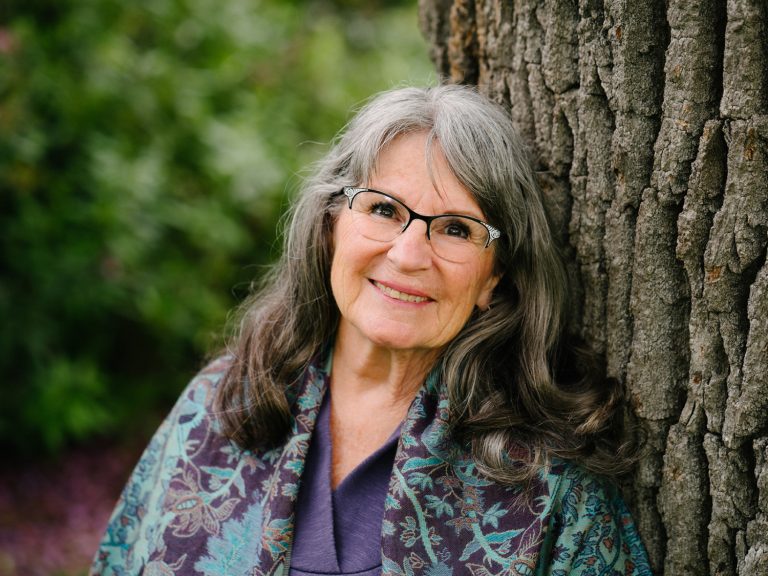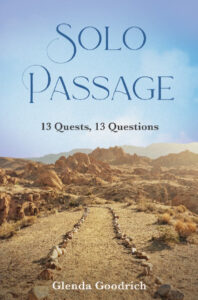
By Glenda Goodrich, author of Solo Passage
One thing we humans all seem to have in common is the longing to be seen and accepted for who we are. We want to be appreciated without having to be more like this or less like that. For me, nature is one place where I feel one-hundred percent approval and recognition without having to prove anything. I was reminded of this lesson this past year when I went on my fifteenth wilderness vision quest in the Modoc National Forest of Northern California.
The wilderness quest, also called a vision quest or a vision fast, is an ancient pan-cultural initiation rite of passage that encourages an awakening of one’s own indigenous wisdom, personal vision, and purpose on Earth. I have quested alone the wilderness for over two decades—in California, Oregon, and Washington State, to places like Death Valley, the Inyo, the Modoc, the Cascade-Siskiyou National Monument, and the North Cascades. Each time, I have gone into the wild looking for something specific and come out with an unexpected treasure.
The experience on my fifteenth wilderness quest in the Modoc turned out to be an anomaly from my previous experiences and a real eye-opener for me. I went out with a group of eight women, but the quest included the traditional four days and nights of fasting and praying alone at a solo power site without any distractions. Twenty-three years ago, on my first quest in Death Valley, I had carried a forty-pound backpack out to a remote site and spent my solo time with no tent and no food. But this year, at age seventy-one, things had changed. I could no longer carry a backpack out to a separate site, so I stayed in my base camp site. My body could no longer tolerate four days of fasting, so I brought food. I could no longer sleep on the ground without getting a terrible backache, so I brought a big tent that I could stand up in and a cot to sleep on.
I was surprised and reassured to discover that bringing food and a comfortable set-up didn’t keep me from what I had come to the Modoc for. Each day I settled more and more into experiencing what nature offered. I woke up at sunrise and went to bed at sunset. My days were filled with the songs of meadowlarks, quail, mourning doves, flickers, and chickadees. The moonless nights were showered with billions of stars that beckoned from the sky like mysterious voices from beyond. Even though I had my car right there with me, I could turn my back on it and face the whole expanse of the Modoc forest. I reflected on my life, wrote in my journal, created art, took walks, and looked for signs and symbols from nature just like I had on all my other wilderness quests. I considered what I needed to let go of and what I wanted to welcome in during my seventy-first year on the planet. By the end of my four-day solo time I felt total peace and contentment—and renewed compassion for my aging body.
People who read my book sometimes tell me that if they were twenty years younger and in better shape, they would love to go out on a wilderness vision quest. Well, guess what? You don’t have to be in your twenties, thirties, or forties to get out there and experience a nature quest. Nor do you have to be a super athlete or a wilderness survival expert. As long as you bring an open heart and a listening ear to the experience, anyone can benefit from the healing and restorative powers of the natural world. 
The peace of nature is accessible to all of us if we let go of any preconceived notions of how we are supposed to be or what it means to spend time in nature. Go out into a garden or a city park, sit quietly under a tree, and notice the details on the bark and leaves. Breathe in the nonjudgmental acceptance that trees offer. Ask them your gritty, nagging, personal questions, then listen for answers.
As circumstances in life change, we can adapt and change, just like nature does. We can mirror her resilience. Nature doesn’t judge. Nature doesn’t expect you to be any way other than how you are. She just exists out there, waiting to welcome you home.